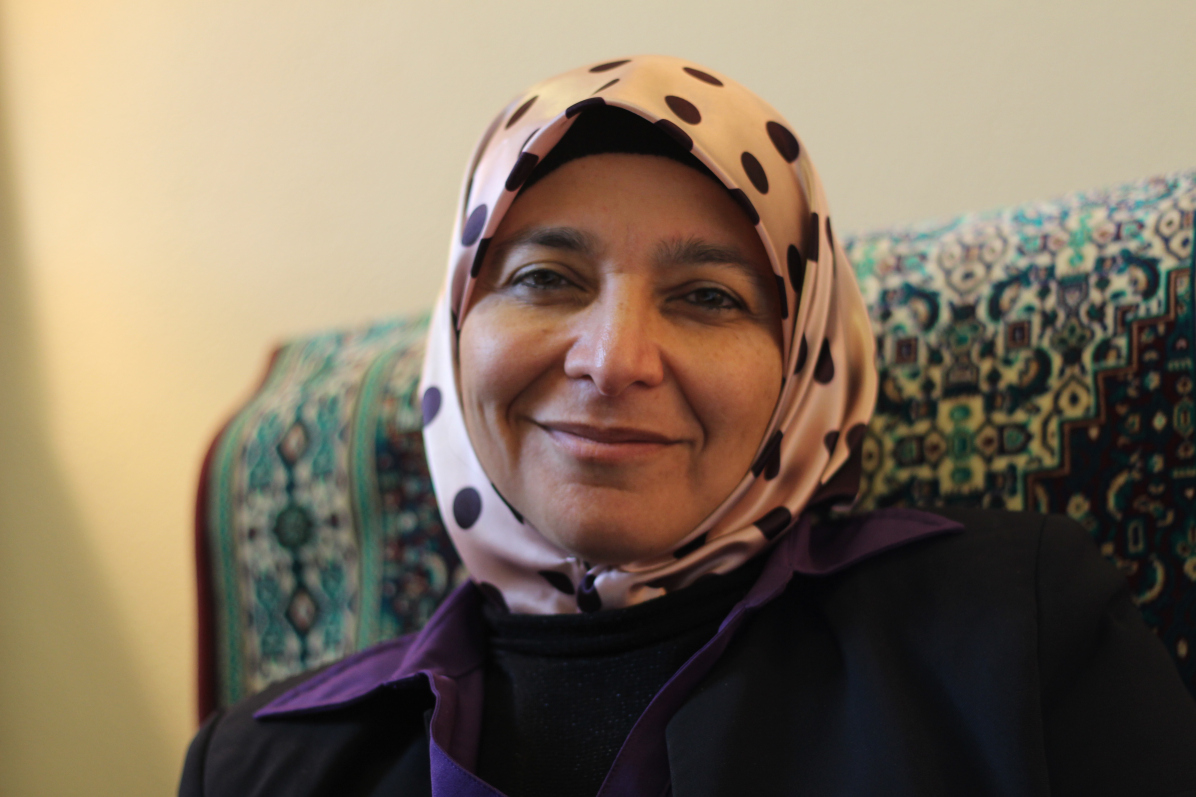You can read the book “Change from Within” here, in pdf format.
All posts by admin
The Development of the Islamic Legal Theory and Maqasid al Shar’ia
This is a conversation with Shaykh Taha Al Alwani about the development of the maqasidi approach.
Dr. Zainab Alwani explains how Taha Jabir al-Alwani originated different methodologies aiming to reform the Islamic law. Read More
Academic Articles and Chapter Books
The Muslim World
In October 2014, Dr. Alwani wrote an article called “Maqāṣid Qur᾽āniyya: A Methodology on Evaluating Modern Challenges and Fiqh al-Aqalliyyāt“ for a special issue of The Muslim World journal entitled “Judaism and Islam in America.”
She also served as the co-editor of the issue. You can find the articles here. See pages 385–388.
Interfaith Just PeaceMaking: Jewish, Christian, and Muslim Perspectives on the New Paradigm of Peace and War
In 2012, Dr. Alwani contributed a book chapter called “Conflict Resolution: Muslim reflection” to the book “Interfaith Just PeaceMaking.” The chapter demonstrates how the Islamic model protects the solidarity of the community and emphasizes the importance of a clear, structured process for solving conflicts. You can read the chapter here.
Setting the Record Straight: Aisha and the Tradition Reclaiming a Lost Legacy
In 2002, Dr. Alwani wrote this paper called “Aicha Istidrakat and Their Methodological Premises: Reclaiming a Stunted Tradition” to draw attention to an important and under-researched area in hadith scholarship, identified with a revisionary body of literature that takes for its scope the verification and validation of prophetic tradition. You can read the paper published in the journal of Women and Civilization here.
Critical Reading in al-Ghazālī’s Usul al Fiah Legal theory Books Qira’a fi Kutub al-Ghazālī al Usulia
In 2001, Dr. Alwani wrote an article analyzing the work of Imam al-Ghazālī in jurisprudence. You can read the article here.
Family Relations: An Islamic Perspective
Islam, as God’s final message to humanity, came to light in a brutal and cruel environment. Violence was a common practice in pre-Islamic Arabic, and the weak and the needy, orphans and widows, and slaves and servants, both there and around the world, had no defined rights. Islam came to establish justice and mercy in the heart of a cruel world. The Qur’an emphasizes that all people are created equal as regards their inherent worth and value, regardless of race, ethnicity, gender, or class. Islam prohibited any oppressive behavior that violates justice, mercy, equality, and freedom. Read More
Interfaith Just Peacemaking: A Muslim Reflection
As Muslims, we regard the Qur’an as the last divine speech revealed by God. It came with a message that is universal and to an audience that comprises all of humanity. Islam yields a set of peace-building values that, if constantly and systematically applied, can transcend all levels of conflicts. These values include justice (‘adl), beneficence (ihsan), and wisdom (hikmah), which constitute core principles in peacemaking strategies and conflict resolution. Read More
Muslim Women as Religious Scholars: A Historical Survey
Since the beginning of the Islamic community in the earliest decades of the seventh century, women have taken a prominent role in the preservation and cultivation of the main sources of Islamic knowledge, i.e. the Qur’an and Sunna. Read More
Religion, Gender, and Family Law: Critical Perspectives on Integration for European Muslims
For well over three decades, Muslim scholars and legal experts residing in Europe and elsewhere have been engaged in a concerted effort to employ classical legal frameworks and principles to formulate religious rulings appropriate to the European sociopolitical and cultural milieu. Read More
Islam and Domestic Violence
Emotional, verbal, spiritual, financial, physical, and sexual abuse have existed in various forms in every society throughout recorded history. Yet it was not until the nineteenth century that domestic violence became a social issue in the United States. Read More
The Qur’anic Model on Social Change: Family Structure as a Method of Social Reform
Islam emphasizes the belief that the family is the cornerstone of human civilization. This article explains that Islamic teachings regarding family structure are unique in providing theoretical and practical answers to modern challenges and have the ability to reform any deviation. Read More
Faces of DC
Faces of DC interviewed Dr. Alwani about her work at Howard University’s School of Divinity in Northeast DC. Read More

